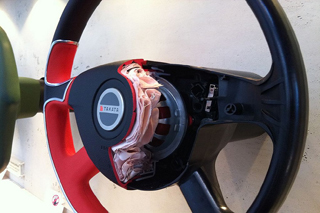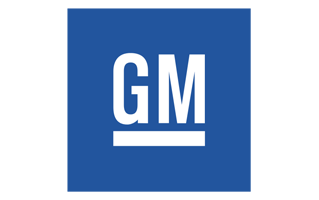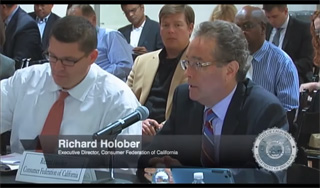Food / Product Safety
CFC-sponsored garage safety law signed by Governor
Governor Brown signed Senate Bill 969, a new law designed to save lives in home fires. The Consumer Federation of California sponsored SB 969 by Senator Bill Dodd, which requires newly sold or installed electric garage door openers to be equipped with a battery backup to prevent people … Read More ›
CFC supports the Cleaning Product Right to Know Act (SB 258)
SB 258 (Lara) would bring transparency to cleaning product labeling, helping consumers make informed choices. Read More ›
CFC supports worker right to know about toxics in cosmetics (AB 1575)
Manufacturers must list ingredients on the labels of cosmetics sold at the retail level (like a Target or Walgreen’s store)—this is good for the people who sell, buy, and use those products. In contrast, chemical ingredients in professional cosmetics do not have to be listed on product … Read More ›
How Recalls Work (And Don’t) And Why They’re All So Different
by Kate Cox, Consumerist

Where do recalls come from, and how are they handled? … The government maintains a one-stop shop website for listing recalls, but there is no National Bureau of Recalls… as much as it might help consumers if there were. Instead, a patchwork arrangement of four independent agencies is responsible for consumers’ health and safety. The agencies each cover a different aspect of health and safety — food, cars, medicines, household goods, and so on — and each of the four has a different process for initiating recalls and notifying consumers. Here’s how it all works. Read More ›
American Chemistry Council Lied About Lobbying Role On Flame Retardants, Consultant Says
by David Heath, The Daily Beast

The American Chemistry Council has long maintained that it had nothing to do with an enormously successful but deceitful lobbying effort in state capitals to defend the use of potentially ineffective and toxic flame retardants in furniture. Now, in a rare breaking of ranks, a top industry consultant is discrediting that story. … He stepped up to a microphone at a California State Senate hearing to announce his support for a bill [CFC-co-sponsored SB 763] requiring labeling of children’s products containing the chemicals. Read More ›
SB 763: CFC, Firefighters, Environmentalists Back Disclosure Of Chemical Hazards In Children’s Products

The Consumer Federation of California (CFC) has joined with professional firefighters and environmental advocates to co-sponsor legislation letting parents know whether products they buy for their children contain ineffective and hazardous flame retardants. … These chemicals have been linked to reproductive harm, cancer and other human health hazards. Fire safety experts consider them to be ineffective in preventing household fires. Read More ›
Lumber Liquidators Linked To Health And Safety Violations
by Anderson Cooper, 60 Minutes

[Denny Larson and environmental attorney Richard Drury] bought more than 150 boxes of laminate flooring at stores around California and sent them to three certified labs for a series of tests. The results? While laminate flooring from Home Depot and Lowes had acceptable levels of formaldehyde, as did Lumber Liquidators American-made laminates, every single sample of Chinese-made laminate flooring from Lumber Liquidators failed to meet California formaldehyde emissions standards. Many by a large margin. Read More ›
Takata “Deeply Sorry” to Those Affected by Defective Airbags, Still Reluctant on Nationwide Recall
by Ashlee Kieler, Consumerist

Senators Richard Blumenthal of Connecticut and Ed Markey of Massachusetts, both members of the Committee, pressured the auto executives to answer questions about the slow-pace related to replacing defective airbags and the failure to expand the scope of the recall. “It strikes me that these airbags failed, but the system failed equally if not more,” Blumenthal says. “I want to join Sen. Markey in his calling for a national recall of all cars with these airbags in passenger and driver’s side.”
Read More ›
Deadline Extended for G.M. Accident Claims
by Danielle Ivory and Rachel Abrams, The New York Times

Although G.M. has recalled about 16.5 million vehicles this year for ignition-related flaws, the compensation fund relates specifically to a pool of about 2.6 million cars that were recalled starting in February, including models of the Chevrolet Cobalt and Saturn Ion. Officials at the automaker knew about problems in the cars for more than a decade, but failed to alert regulators and the public until this year. The cars have a defective ignition switch that can suddenly cut off engine power and deactivate airbags. Read More ›
CFC Addresses Benefits and Risks of Driverless Cars

Noting that the technology could reduce accidents if it’s widely adopted, CFC Executive Director Richard Holober stressed the need to ensure that any savings get passed along to consumers under Proposition 103. He also cited concerns about who would have access to data from the vehicles, and of possible meddling by hackers. Read More ›
California’s Strawberry Industry Is Hooked on Dangerous Pesticides
by Bernice Yeung, Kendall Taggart and Andrew Donohue, Center for Investigative Reporting

Growers rely on heavy amounts of some of the most dangerous pesticides – a class called fumigants – to deliver the fruit year-round at an affordable price for consumers. Because strawberries like to grow where people like to live, in the perpetual spring of coastal California, growers often use the pesticides near schools, homes and businesses. … Nearly a decade after the pesticide was supposed to be banned, the state’s strawberry growers have staved off the deadline by warning of financial ruin. Today, they use about 90 percent of all the methyl bromide in the developed world. Read More ›
GM Ordered Switches Nearly 2 Months Before Recall
by Tom Krisher, The Associated Press

The switches can slip out of the run position, causing engines in cars such as the Chevrolet Cobalt to stall. If that happens, the power steering, brakes and air bags are disabled, and people can lose control of their cars. GM eventually recalled 2.6 million small cars for the problem, which has caused at least 32 deaths. The emails in the chain, which run from December into February, call the matter “urgent” and eventually use the words “safety issue.” Read More ›
It’s the Worst Year Ever for Auto Recalls. Why Are So Many Dangerous Cars Still on the Road?
by Drew Harwell, The Washington Post
Those defective cars can then spread widely to used car lots and the driveways of unsuspecting buyers. About 3.5 million recalled cars and trucks were listed for sale last year, according to Carfax. Keeping track of what cars are problematic can also prove a hassle: Stericycle, a recall consultant and service firm for automakers, said there have been 544 separate recalls announced this year, or nearly two recalls a day. Read More ›